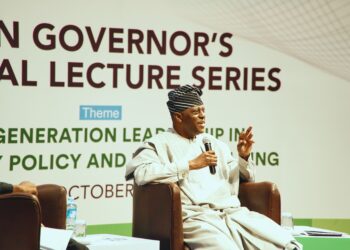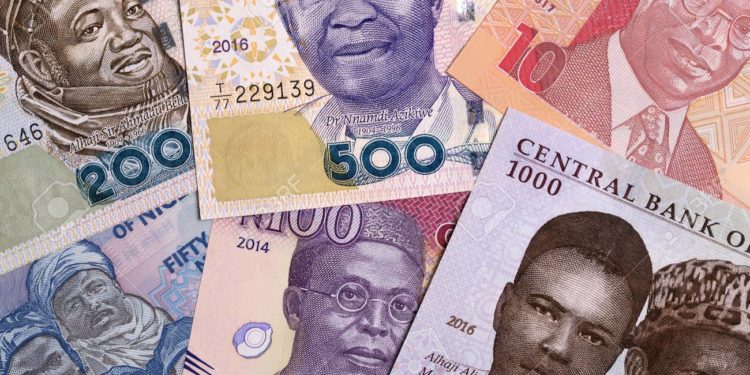Background
As revealed by the National Bureau of Statistics (NBS), Nigeria’s inflation rate rose to a 17-year high of 19.64% in July 2022.
- This compares to the 15.6% seen in January 2022, thus a 25% worsening of Nigeria’s inflation rate within 7 months.
- It is worth bearing in mind that the official inflation rate is a national average of averages. Thus, actual inflation being felt by individuals will differ depending on location and actual items being consumed across Nigeria.
Nonetheless, the key issue here is that Nigeria’s headline inflation has continued to worsen despite the CBN’s attempt to hike interest rates.
- Note that CBN raised interest rates to 14% in July 2022 compared to 11% in January 2022. Thus a 27% tightening of MPR.
In other words, despite multiple interest rate hikes by the Central Bank of Nigeria (CBN), inflation continues to rise, leading to the massive erosion purchasing power of Nigerians.
Ineffective Monetary Policy tools
Typically, when a central bank raises interest rates, it attempts to impact consumption by raising the costs of borrowing.
In theory, reducing consumption will slow purchases and ultimately force suppliers to reduce prices to attract consumers.
- Readers can see more here
Unfortunately, this approach to tackling inflation via interest rates is relevant in countries where inflation is driven by consumption (i.e. countries with full employment and experiencing GDP growth fueling price upticks due to consumer demand)
For Nigeria, unfortunately, Nigeria’s inflation is the result of insufficient productivity which is now being compounded by ultra-high spike in Money supply.
- Note that weak productivity cuts across the entire spectrum of the Nigerian economy (i.e. Agriculture, trade, manufacturing etc)
- Between 2016 to 2021 Nigeria’s economy grew by an average of 1.3%. This compares to Money Supply which grew from N23.6 trillion to N43 trillion over the same period
Consequently, given the anaemic levels of economic productivity, it will appear that traditional tools available to the CBN are not adequate to keep Nigeria’s inflation in check.
In other words, rising interest rates cannot unilaterally improve growth, neither can raising interest rates create jobs for Nigerians nor address challenges across the various economic sectors from Manufacturing to Trade and services.
Even in the last MPC meeting in July 2022, the apex bank also expressed worries about the ineffectiveness of interest rate hikes on inflation.
“The MPC noted with concern the continued aggressive movement in inflation, even after the rate hike at its last meeting, and expressed its unrelenting resolve to restore price stability while providing the necessary support to strengthen the fragile recovery,” Godwin Emefiele, CBN governor said.
So what are the main components driving Nigeria’s inflation?
Using the NBS data, the top five components to Nigeria’s inflation are Food, Household expenses, Clothing/Footwear, Transportation, Furnishing and Education with Health coming a close sixth.
Interestingly NBS also assigns a weighting to emphasize how important each component is in the calculation of overall inflation.
- Per below, Food price increases account for over 50% of Nigeria’s inflation basket. This National average shows unrelenting spikes in food prices from 17% inflation in January to 22% in July
- Other notable items in the NBS basket include Housing costs (16.7% of total), Clothing/Footwear (7.65% of total), Transport (6.5% of total), Education (3.9% of total)
What is even more remarkable is that since March-2022, every single component of Nigeria’s inflation has been rising.
It is simply unclear how CBN raising interest rates will reduce Nigeria’s food price inflation let alone the other components of Nigeria’s inflation.
Especially as these items are simply core items that Nigerians spend their money on.
So what happens next?
The unfortunate reality is that the central bank’s attempt to use interest rates to tackle inflation is unlikely to be effective, simply because the drivers of Nigeria’s inflation are not interest rate sensitive.
Rather, tackling inflation requires priority focus on real sector initiatives such as improving agricultural yield, mitigating logistics costs of getting food from the farm to people’s dinner table, and supporting key manufacturing sectors. All these are beyond monetary policy scope.
The caveat here is that this focus needs to be evidenced by tangible and measurable improvement in output.
























If an economy consumes more than it produces over a long period of time who the fuck thinks that this will not have a big impact on the economy. The same is happening in the US. If they dont invent and start to manufacture they will inflate like a frog its belly.
Manufacturing and supplies are reduced due to China lockdowns & the war in Ukraine – add to this the high level of cash in circulation which has increased demand….this has consequently increased the cost of production and transportation of those manufactured goods.
My stake is CBN will have to do more by ensuring a successful programs in the nation’s Agricultural boost. Discourage importation of foods we can locally manufacture in a short time, reduce interest rate to a certain minimum for common Nigerians to afford for food productions while also work earnestly with FG in tackling securities challenges that bewildered our beautiful nation.